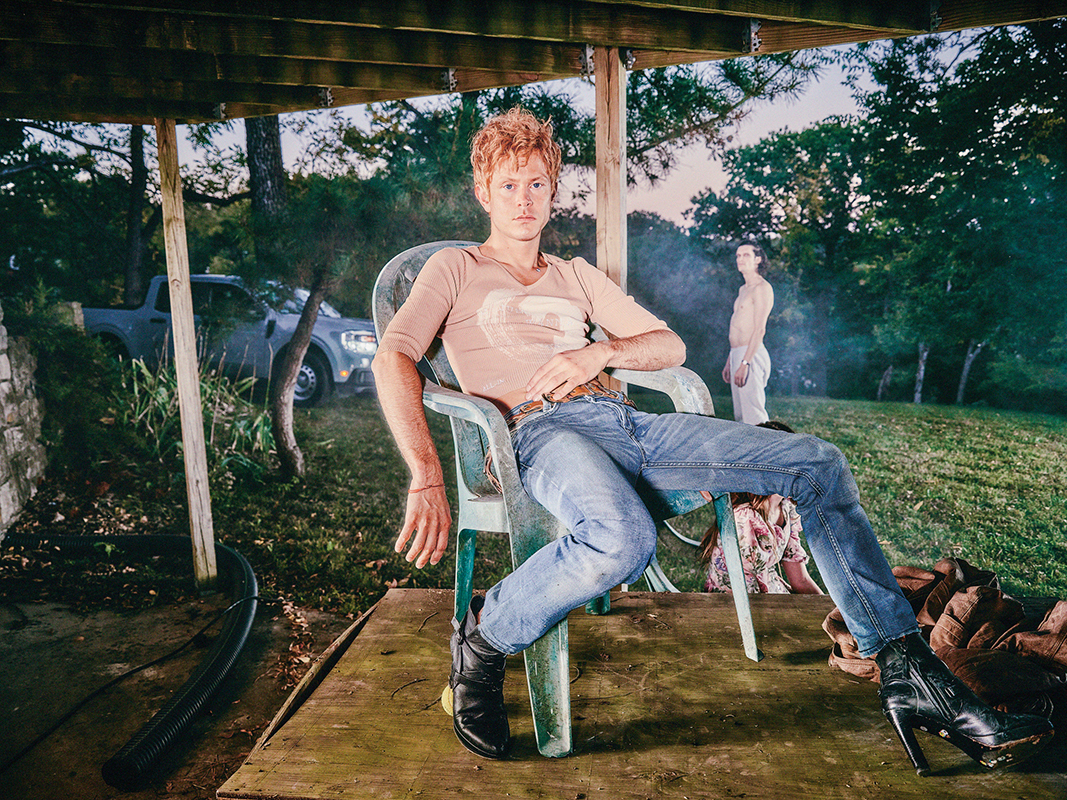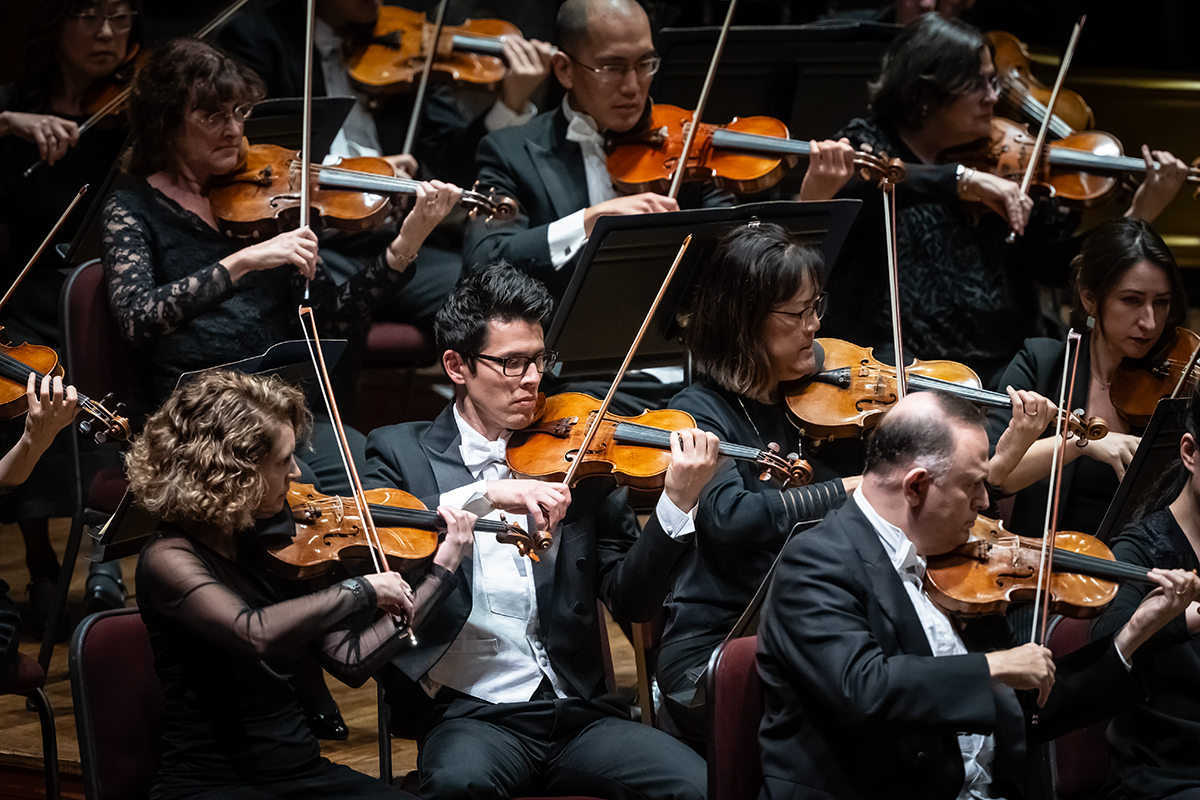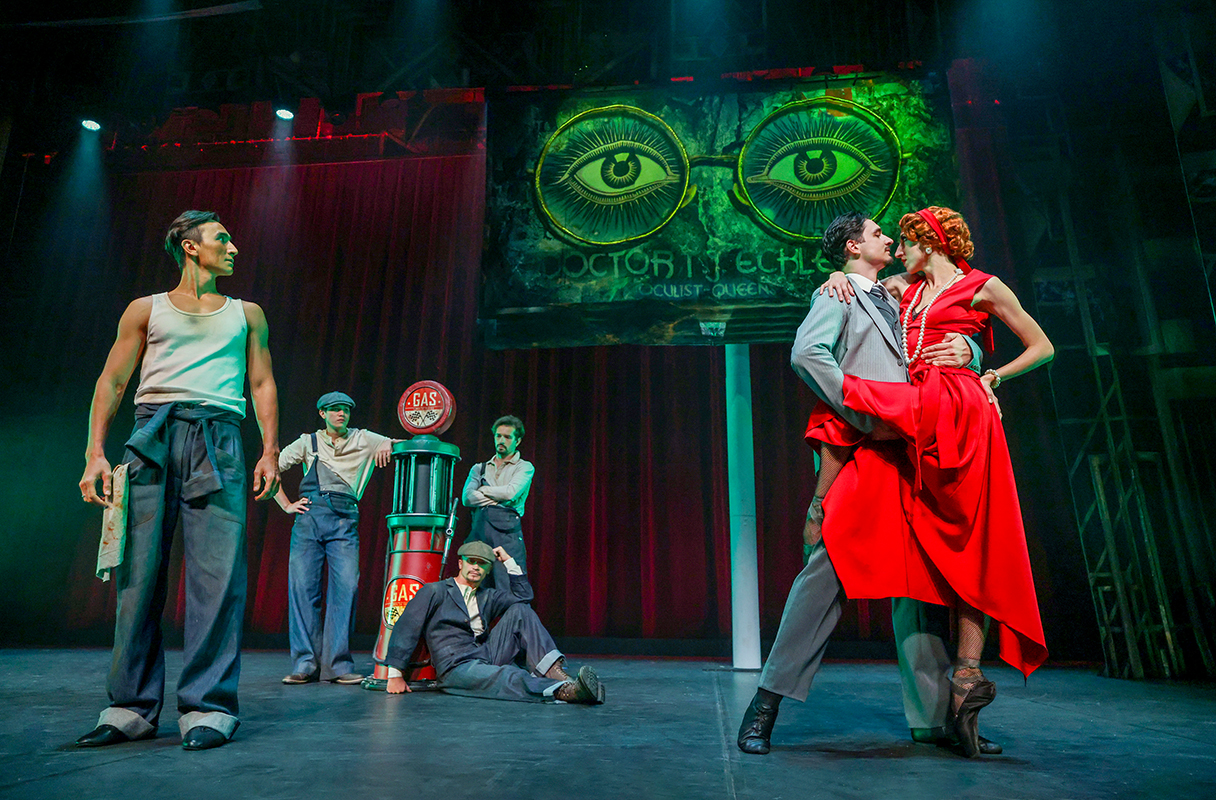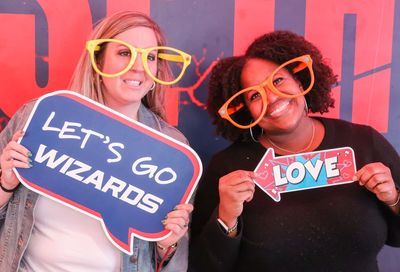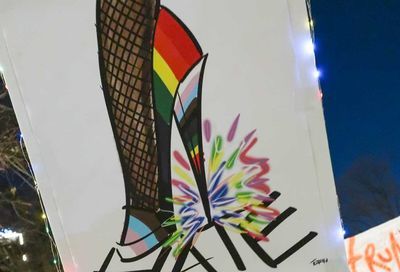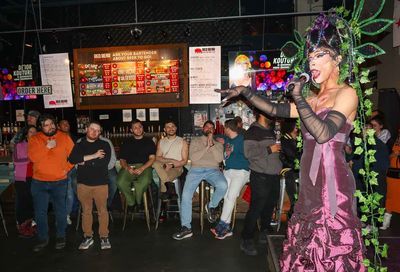Leader of the Pack
Arvind Manocha's childhood rock-star dreams have evolved into a broader Wolf Trap reality

Wolf Trap CEO Arvind Manocha
(Photo by Todd Franson)
MW: I understand in college you wrote a couple plays, some fiction. Do you still write?
MANOCHA: No, not really. I realized in my mid-20s, as much as I had been doing it up until that point, when I stopped doing it I didn’t miss it at all.
That’s a pretty important thing to know about yourself. Some people are born to create. And other people, I think, are born to celebrate and support those who create. Sometimes people get confused about which one of those two they are. But I knew that my more fundamental calling wasn’t to spend a lot of time on my own writing. I’m not good spending all day by myself. I need to be with other people, interacting and engaging.
MW: Was coming out a struggle?
MANOCHA: No, actually, not at all. Quite frankly, I feel very fortunate. When I told my parents that I was gay, it was more an issue for me than it was for them. They were great. I can’t remember the exact words, but it was something along the lines of, ”We just want you to be happy.” They were awesome about it.
MW: It probably helped that they were professors, educators.
MANOCHA: I don’t know. They were both in a university setting, so certainly their life was spent in large part with younger people — college kids, graduate students. But the area we grew up in, the colleges they worked in, I wouldn’t say were hotbeds of liberalism. ‘
MW: This was suburban Cleveland?
MANOCHA: A place called Warren, Ohio, which is a suburb of Youngstown, which in itself is an hour south of Cleveland. We weren’t really in a Cleveland suburb – that would have been more cosmopolitan.
I grew up in a place where there was not a lot of diversity. At all. There were some ethnic-minority communities, but it was a mostly very homogenous town. People knew each other. It was mostly a fairly conservative, white community, so my family and some of my parents’ friends were definitely different.
Just looking at it on paper, you might not have thought that was going to be a place where the Indian kid goes back and tells his parents he’s gay and everybody’s happy and hugging and responsive and supportive.
MW: Did you have a rough time growing up in high school being non-white in such a white setting?
MANOCHA: I wouldn’t say rough. I would say we were conscious of it, though. I think that there’s a very big difference between prejudice and ignorance. I think there was definitely prejudice in town, and that would come up from time to time, absolutely. I’m not candy-coating it, but I would say my overriding feeling about growing up there was that there was a lot of ignorance.
It’s kind of comical to think back about some of the questions you would get. People really didn’t know what Indian people were. They didn’t know where we came from. People would say things like, ”When did you leave the tribe, or the reservation?” Or when they realize India is a foreign country as we got a little bit older in life, kids would say, ”But are there airports there? How do you get there? Do you have to take camels?” Ignorant stuff.
If you think back about the ’70s and ’80s, there was almost no representation of Indian people in the media, right? Now it’s a very different day, both on the gay side and on the Indian side, which is great for me. [Laughs.] Suddenly ”gay” and ”Bollywood” all kind of equals interesting and fabulous.
MW: When did you come out? Were you bullied?
MANOCHA: That part of it came much later. Growing up, the most obvious, defining characteristic that made me different was being Indian. I was very conscious of that, and much more focused on navigating childhood and wanting to be accepted. You want to fit in. And I never was bullied, never felt like an outcast. But the Indian-ness, the fact that at home we lived very differently than every one of my friends did, that all was much more top of mind.
It wasn’t until I went to college and then past college into grad school, where I started to feel more comfortable about racial identity. Once that became more comfortable, I started to peel away and figure out the rest of my life.
MW: Were your parents also supportive of your focus on literature as a degree, and your career in the arts that followed?
MANOCHA: Absolutely. My parents never did the kind of stereotypical thing. I didn’t get any pressure to be a doctor, I didn’t get any pressure to be an engineer. Certainly, a lot of that exists. That stereotype has certain realities to it, for sure. But they weren’t medical doctors either, and I think that played a big part of it.
A lot of the population that emigrated from India in the mid-’60s when the laws changed were engineers and medical doctors, and therefore I think quite naturally encouraged their children to follow in similar footsteps. My parents were very happy that I was studying literature, and that I was more on the liberal arts side. My elder brother’s an engineer who went to MIT. We’re very different in that sense, and my parents never really expressed any preference or coaching as to which direction to follow.
MW: Let’s talk about your life now. How long have you and Gideon been together?
MANOCHA: Well, we met 17 years ago. I can’t say we’ve been exactly together all of that time, because he was in London and I was in L.A., and at some points the long-distance thing became very complicated. But we kind of figured it out for ourselves in 2002. We kind of made a commitment to making it work.
MW: And having just moved to the D.C. area, you’re making it work in a new environment. How has it been so far?
MANOCHA: Great. We moved here very happily. Part of what’s been great is that when he moved to L.A., he was moving to a city that I had already lived in for 10 years. I think coming here has been particularly good, because we’re coming to someplace fresh together.
MW: Are you two married?
MANOCHA: No. We are planning on getting married. We had planned on getting married last year, and had actually started planning that wedding for the fall of 2012, and then I started getting calls about moving out here. It was too much to do both. We’re hoping for next year.
MW: Will the wedding be here?
MANOCHA: It’ll depend on a few things. It depends on what happens with the [Supreme] Court. I do anticipate that DOMA will be repealed, which will at least allow us to get married, either in the District or Maryland or somewhere where it is legal on the state level and have that recognized. Who knows? If the court goes all the way on the Prop. 8 case, potentially it could be legal everywhere soon. I’m not holding by breath for that, though.
MW: With Gideon a U.K. citizen, you must be following the immigration-reform efforts in Congress.
MANOCHA: Very keenly. For us, the biggest impediment in our lives personally is the complete lack of equality when it comes to immigration for binational gay couples. This actually has been the first time in my whole life where it really became very painfully aware to me the difference between prejudice and discrimination. People can be prejudiced and that’s unfortunate, but it’s a reality. If your neighbor doesn’t like your family, that’s kind of their problem. They can make your life complicated, but as long as it’s just them not liking you, fine.
When the state that you were born into – meaning the United States – where you feel like you’re a model citizen, you do well in school, you have a good job, you’re paying your taxes, you do all the things you’re supposed to do to be a productive member of society, and then you’re told you don’t have this right that everyone else has. That’s a very different feeling. There are very few vestiges of that kind of state-sponsored discrimination left, which is great. I know that it’s not been that long that other elements of the highly discriminatory practices of the state have been repealed — in the last 50 years — but this inequality bit on marriage, it’s a shocker.
People used to say to us all the time, ”Why don’t you just go get married in Massachusetts and then he can move here?” Frankly, gay people used to say this to us all the time. You’d have to remind people that immigration rights are federal rights, not state rights.
We were fortunate in the sense that when we decided to make a go of this, before I had to move there (the U.K.), he got a job at UCLA. That was an amazing turn for us, [because] they sponsored his green card. So he was able to live and work here on a work visa, and then got his permanent residency based on that experience. Otherwise, I would have moved, for sure.
MW: It would have been easy for you to gain citizenship, in Britain or another Commonwealth country, such as Canada, through him?
MANOCHA: It would have been very easy to get citizenship through him. It would have been a very different career path for me, but at that point we realized if we can’t live together here, even though I had a good career going in L.A., we would have moved for sure.
All sorts of people who shouldn’t have to leave their country to be with somebody are leaving. Moving to Canada, moving to Argentina, or moving to England or moving to someplace in Europe.
MW: To return to the distinction you made between prejudice and discrimination: You felt prejudice growing up, chiefly as an American of Indian descent, but you didn’t feel discrimination until more recently, and strictly as a gay person?
MANOCHA: I didn’t feel discrimination growing up. I felt prejudice. You felt that people were being unfair. You felt that people were in that sense exercising their personal rights to be dickheads. There’s no mandate from the state that you must be a good person. That can be very hurtful, but did it prohibit me from going to school? Did it prohibit me from getting a job? Did it prohibit me from applying to certain colleges? I felt like I was able to do those things.
But the marriage-equality thing, when I realized I might have to leave the country over this, because the state says that we not only can’t get married on a federal level, but there’s no provision in any of the immigration statutes that allows you to do this. If I were a straight guy and went to Europe for the weekend and met a woman and fell in love and got married the next day, she could have moved here with status and a visa within six weeks.
MW: Let’s turn to your career. I guess the challenge you have at Wolf Trap, as with the Hollywood Bowl, is the broad scope of performances. You’re not just a rock venue, or a presenter of classical concerts, or jazz jams, but all of that and more.
MANOCHA: We are, on some level, all of those things. It makes it complicated. That’s actually harder than if we were any one of those things.
We buy time on every radio station on the dial. We have to have a relationship and a vocabulary and something relevant to the pop station, the indie station, the jazz, classical, Latin – all of it. It makes it very hard, but also really great.
We consume music so differently than we did when we were kids. Now we consume music on a much more eclectic basis, because the technology has made it easier to do that. We’re not necessarily dropping the needle on a record and having it play through and then flipping it over. We’re listening to individual tracks that we’ve downloaded. It’s much easier to go from your love of R&B to your love of metal to your love of blues in the same playlist, artist to artist. And I think festivals like this make it easy for people to have that kind of writ large in the course of a summer.
Support Metro Weekly’s Journalism
These are challenging times for news organizations. And yet it’s crucial we stay active and provide vital resources and information to both our local readers and the world. So won’t you please take a moment and consider supporting Metro Weekly with a membership? For as little as $5 a month, you can help ensure Metro Weekly magazine and MetroWeekly.com remain free, viable resources as we provide the best, most diverse, culturally-resonant LGBTQ coverage in both the D.C. region and around the world. Memberships come with exclusive perks and discounts, your own personal digital delivery of each week’s magazine (and an archive), access to our Member's Lounge when it launches this fall, and exclusive members-only items like Metro Weekly Membership Mugs and Tote Bags! Check out all our membership levels here and please join us today!




